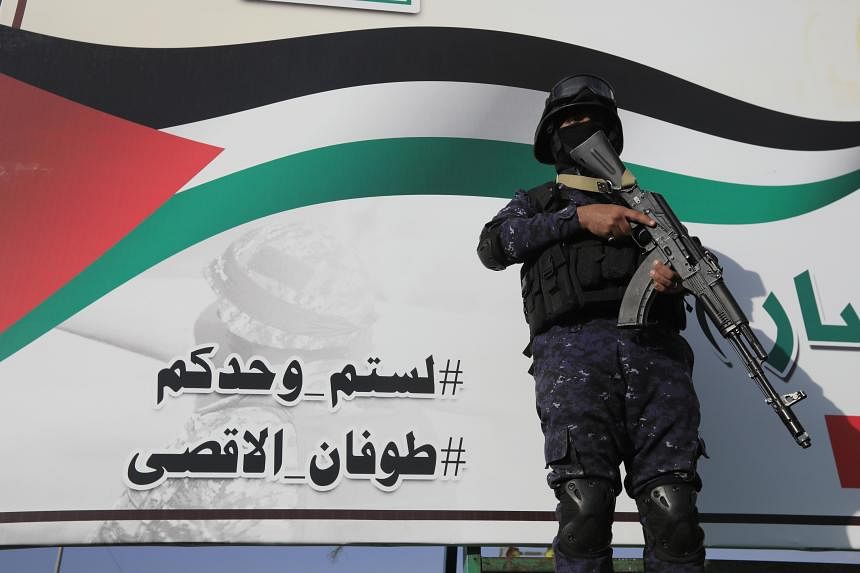
WASHINGTON – The United States and its allies have weighed striking Yemen’s Houthi militants after telling them to either halt their attacks on ships in the Red Sea or face unspecified action.
Washington and a dozen nations this week warned that the Houthis would “bear the responsibility of the consequences” if they persisted with their attacks in the crucial maritime trade artery.
Several military and naval experts interviewed by Bloomberg have interpreted this as a threat of imminent strikes against the group, though such a move runs the risk of making matters worse, so more limited action is also a possibility.
Challenges include the potential for further regional instability, with tensions already high due to Israel’s war against Hamas.
US President Joe Biden must also consider the effect of conflict during an election year.
The US may also rely on diplomacy, with Mr Biden’s special envoy for Yemen, Mr Tim Lenderking, travelling to the Middle East next week to join Secretary of State Antony Blinken on his tour.
Mr Lenderking said while there is “no tolerance” for the ship attacks that have created “a climate of alarm” globally, the Houthis still have a chance to opt for the “wisest course” of ending violence in the Red Sea and focusing on the needs of Yemeni people. He spoke to Qatar-based Al-Jazeera news channel on Jan 5.
If diplomacy fails, the US and its allies will have to carefully “choose options that are clearly defensible” and which target the Houthis’ ability to continue disrupting Red Sea navigation while “avoiding getting involved in a regional conflict”, says Mr Nick Childs, senior fellow for naval forces and maritime security at the International Institute for Strategic Studies.
According to more than a dozen people interviewed by Bloomberg including experts on Yemen, shipping and defence as well as security, these options include:
Targeted strikes
These would be focused on eliminating or degrading the Houthis’ ability to fire ballistic missiles at ships and shipping lanes by striking launch sites, radars, missile warehouses and other supporting infrastructure and logistics.
Since mid-November, the Houthis have fired more than 100 drones and ballistic missiles in two dozen separate attacks, according to the Pentagon. More than 15 vessels have been targeted.
Yet this approach leaves the Houthis with other means like drones, sea mines and attack speedboats, while running the risk of escalating the situation further – stepping up the battle with Yemeni militants that could draw in their Iranian backers.
“What we have yearned for from day one is for the war to be directly between us and the American and Israeli” enemy, said Houthi leader Abdul-Malik Al-Houthi in a speech in December.
https://news.google.com/rss/articles/CBMidWh0dHBzOi8vd3d3LnN0cmFpdHN0aW1lcy5jb20vd29ybGQvbWlkZGxlLWVhc3QvdXMtYnJhY2VzLWl0c2VsZi1mb3ItaGlnaC1zdGFrZXMtZGVjaXNpb25zLW92ZXItaG91dGhpLXJlZC1zZWEtc3RyaWtlc9IBAA?oc=5
2024-01-06 12:53:00Z
CBMidWh0dHBzOi8vd3d3LnN0cmFpdHN0aW1lcy5jb20vd29ybGQvbWlkZGxlLWVhc3QvdXMtYnJhY2VzLWl0c2VsZi1mb3ItaGlnaC1zdGFrZXMtZGVjaXNpb25zLW92ZXItaG91dGhpLXJlZC1zZWEtc3RyaWtlc9IBAA
Tidak ada komentar:
Posting Komentar